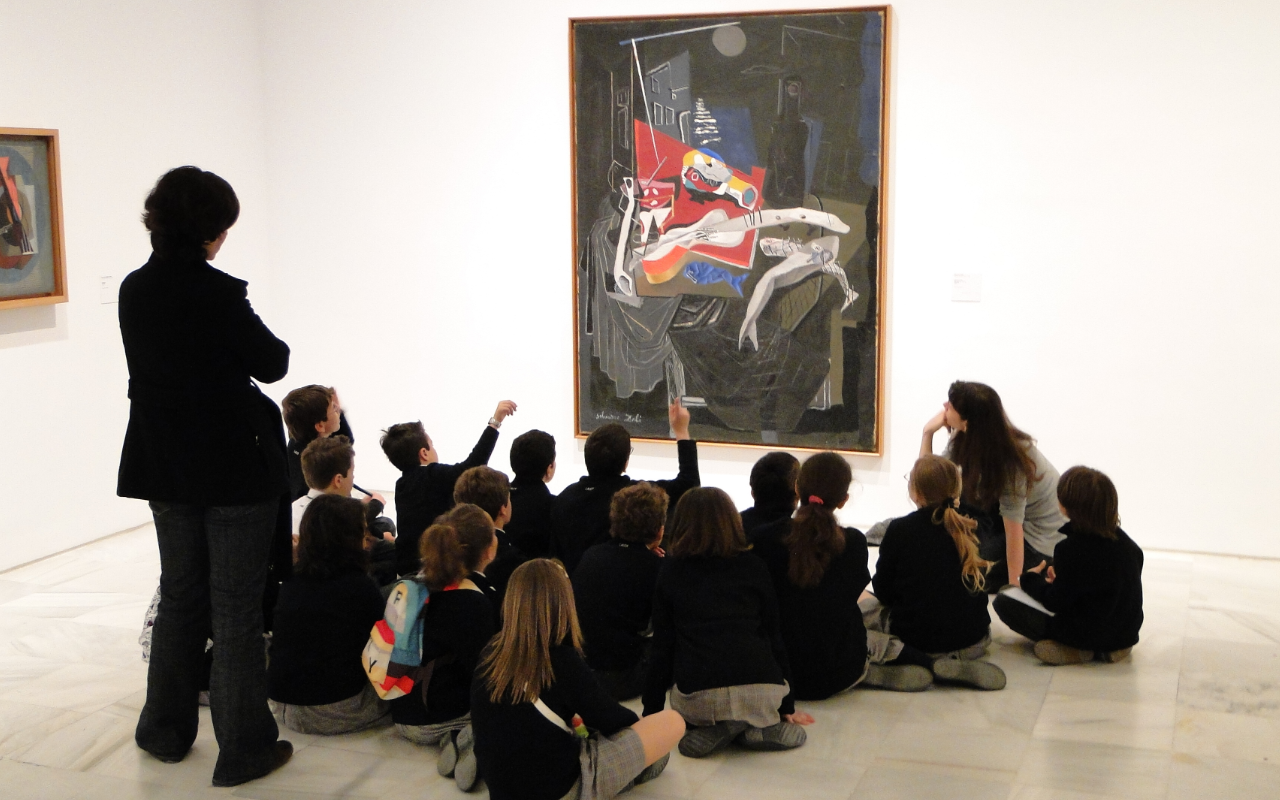
A creative education has been found to benefit pupil's skills and wellbeing
Photo: Adam Jones
Creative teachers offer the most industry experience
A new report recommends long term funding to allow more schools to embed opportunities to work with industry partners.
Creative subject teachers are more likely to provide industry experience than their counterparts, new research indicates.
The Enhancing Creative Education report, published by the AHRC-funded Creative Industries Policy and Evidence Centre (PEC), says a creative education benefits pupils’ skills, wellbeing, and future employability.
A survey of more than 7,000 teachers found creative subject specialists were most likely to work with cultural organisations, arrange industry focused projects and extracurricular clubs, and ask employers to give careers talks in schools.
READ MORE:
- Contribution to culture part of universities' value
- Schools may have to suspend music teaching, DfE warns
Joy Williams, Senior Researcher at the Institute for Employment Studies and one of the report authors, said the findings highlight the important work arts teachers do to promote good quality education.
“They are working with employers and facilitating creative activities that will set up today’s pupils with the skills and capabilities they need for work.”
All parties benefit, the report says: pupils learn how to enter the creative sector, employers get to work with a younger generation that may help diversify their workforce, and teachers develop lesson plans that prioritise skills the creative industries need.
Tom Prytherch, Art Teacher at North Shields’ Marden High School, said local partnerships allow students to link up with professionals and develop their own pathways.
“[This] in turn has opened doors for further experience, training and employment”.
Towards a universal offer
The report calls for systemic offer of education throughout the country.
Three key features are identified as vital for supporting a more universal offer: sound school governance and leadership, highly skilled and capable teaching staff and local creative partners.
Tackling inequities between the regions will help “reinvigorate creative cold spots”. At present, partnerships between schools and creative employers depend on local networks, meaning culturally deprived areas develop fewer opportunities.
Finance is also a barrier, with schools struggling to fund extracurricular projects themselves and finding sign-off from senior leadership difficult to obtain.
In its recommendations, the report calls upon the Government to recognise the value of creative subjects and creative teaching by providing flexible long term funding for industry partnerships.
Post-pandemic challenges
The pandemic exacerbated existing inequalities, widening the gap for the already disadvantaged, secondary school teachers say.
In PEC’s survey, 99% of creative subject teachers reported disruption to lessons during Covid-19, compared to a cross-curriculum average of 95%.
More than half said the pandemic diminished work experience opportunities, lessened choice in creative subjects, and affected pupils’ engagement.
But school closures also appear to have reinforced the value of creative education. A 2021 Beatfreeks survey found 93% of 16 to 18 year olds feel creative education is good for their wellbeing.
Maintaining a focus on creativity must play a central role as schools emerge from the pandemic, the researchers say.
PEC Lead on Skills, Jobs and Education Lesley Giles says this focus is crucial to preserving the talent pipeline: “[It will] ensure the creative sector continues to innovate and grow in the future but will also enable the wider economy to flourish.”
Join the Discussion
You must be logged in to post a comment.